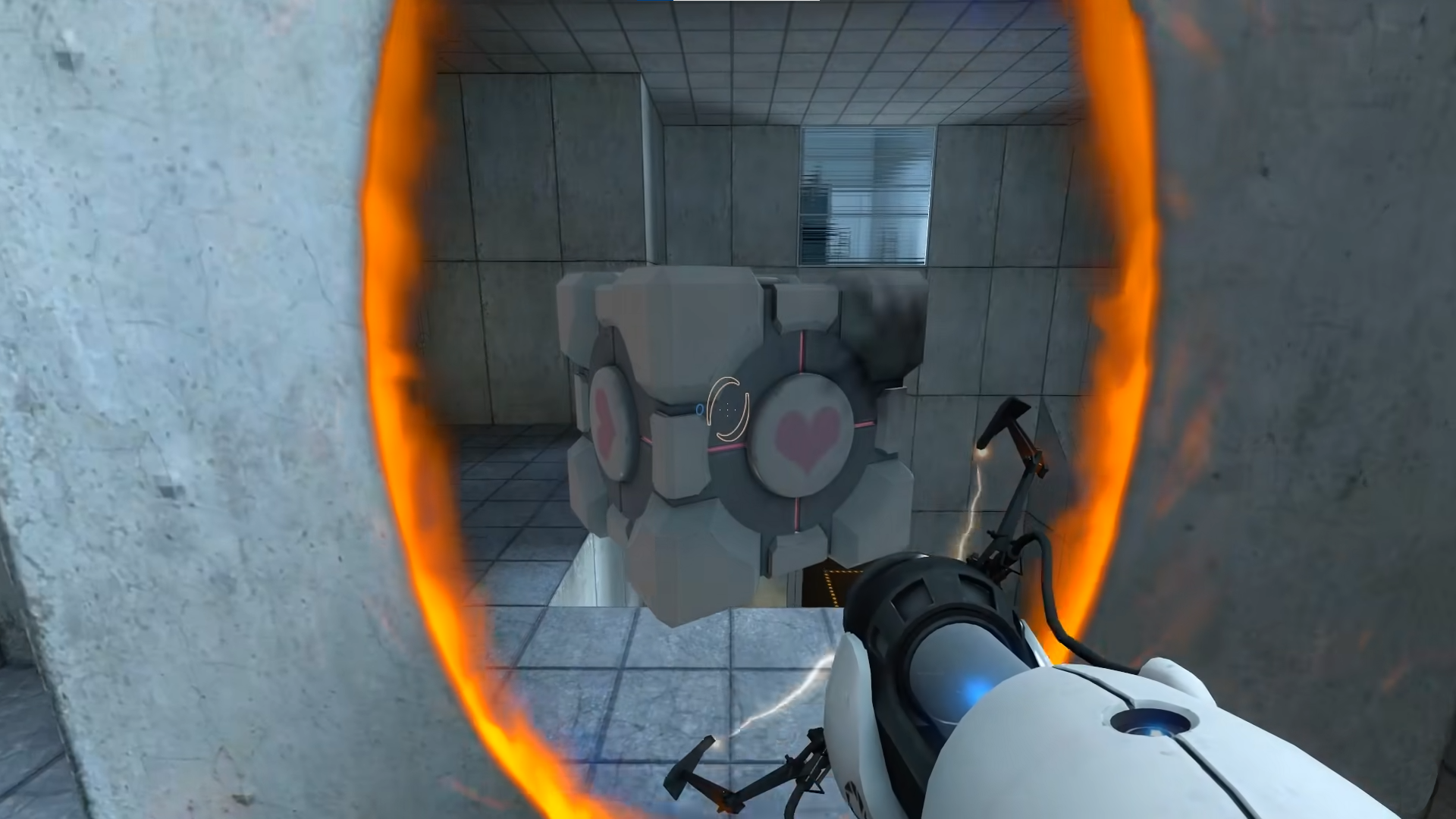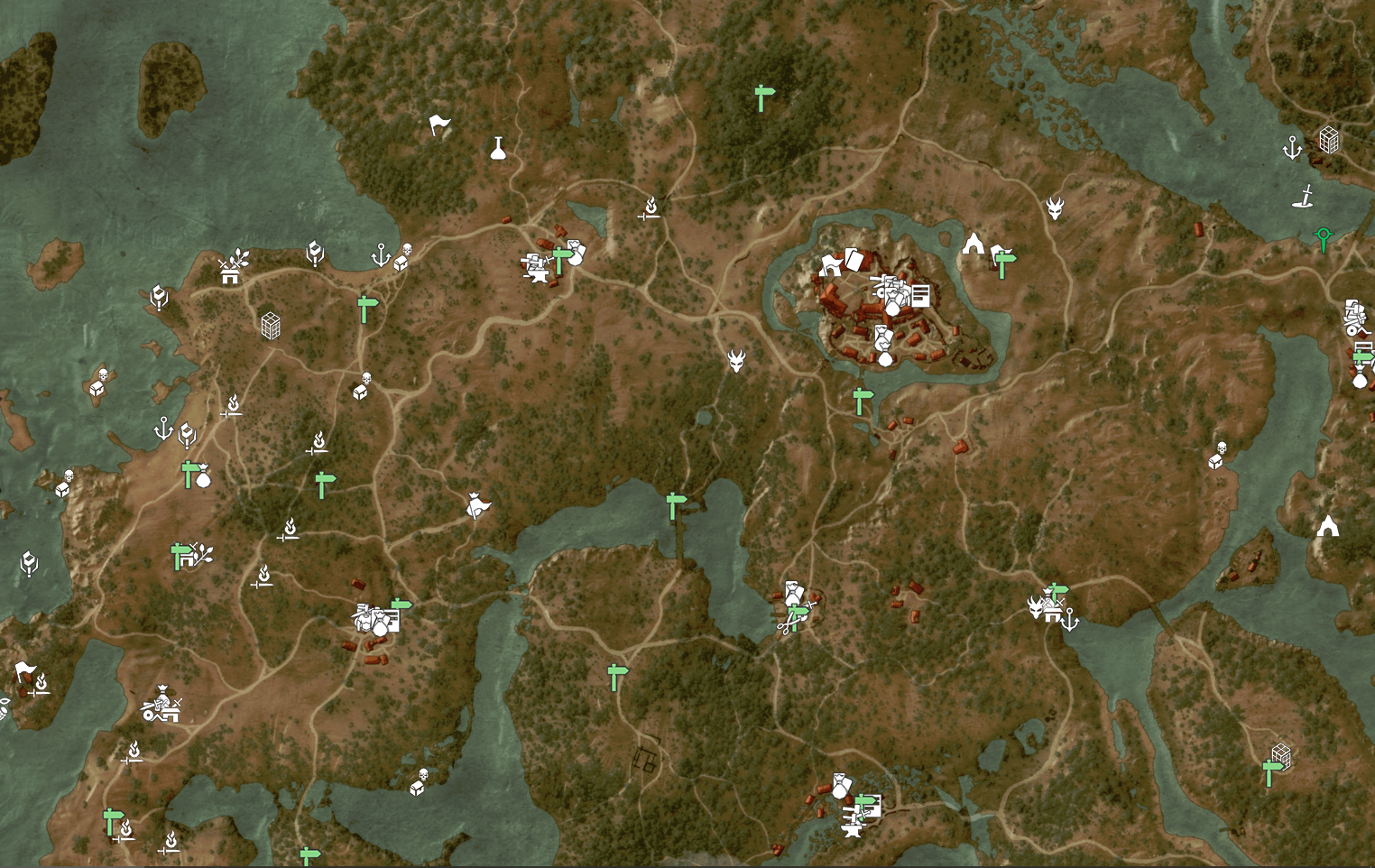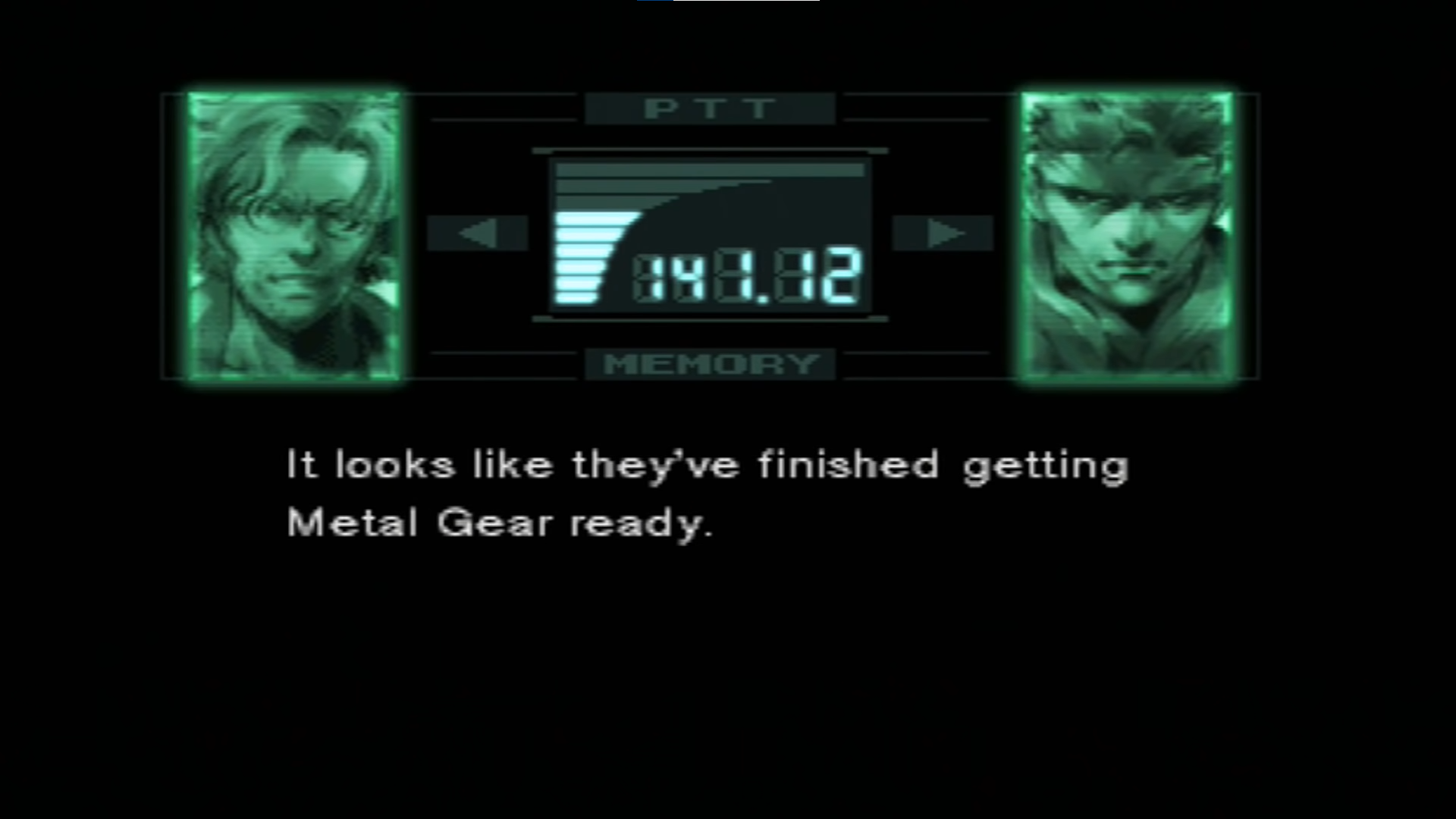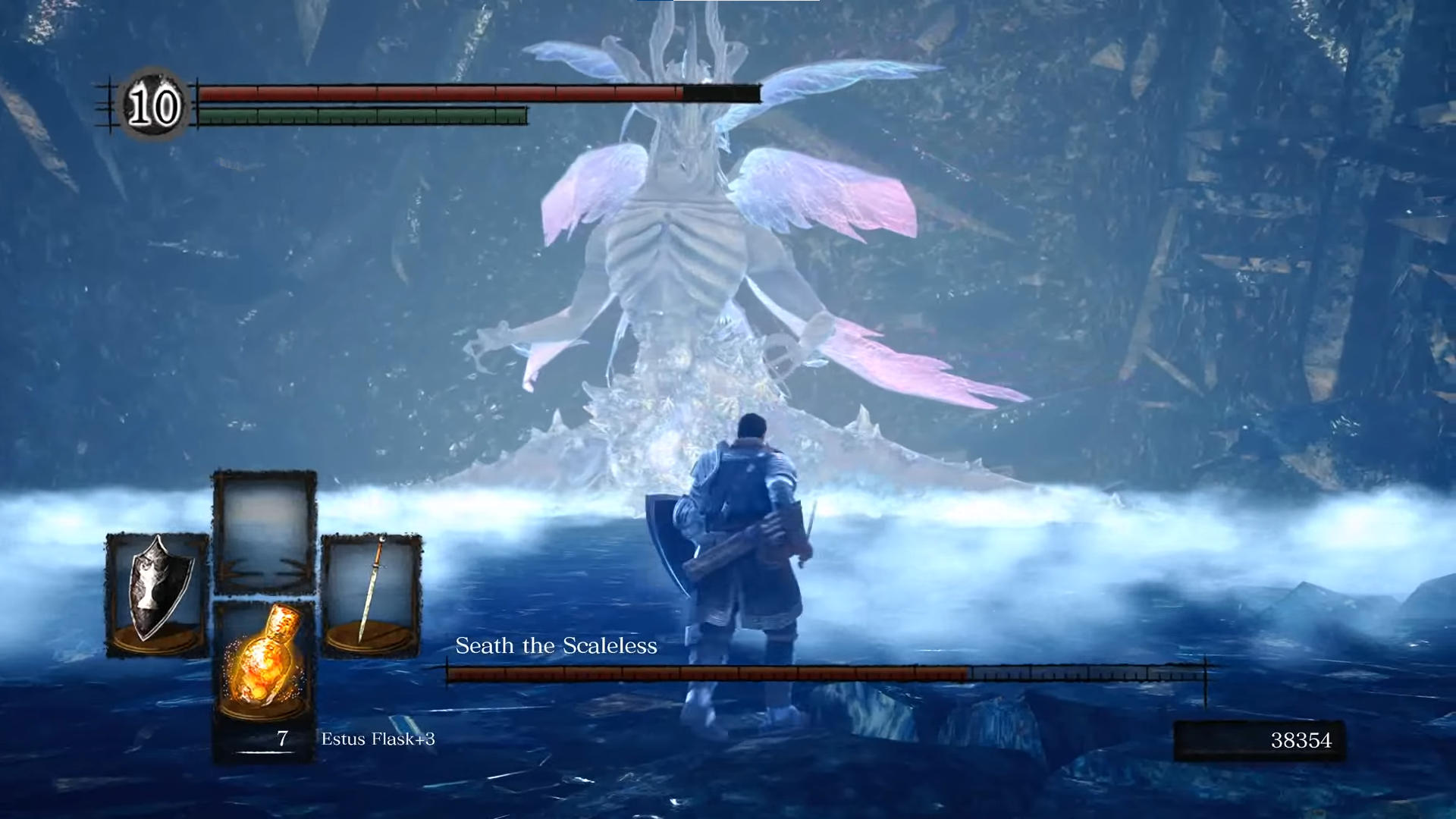
I'm glad we were able to spend this time together, even though you'll just leave like everyone else

I'm glad we were able to spend this time together, even though you'll just leave like everyone else

When you see a video game that appeals to you, what is it that makes you decide whether or not to buy it? Is it the creator? The franchise? The gameplay, including visuals, audio, and story? Most of these will probably influence you to some extent, but one of the largest aspects can often simply be the price of the game. We all want to get games that give us our value for money, and with that in mind, publishers love adding in extra content and telling us how many hours of entertainment we can expect from their product. But is this a good thing? Is a game that gives 50 hours of gameplay for $50 better than one that gives 10 hours of content for $25?
The vast majority of the time, I’d argue not. There’s a number of elements that can factor into this, but the main one to start looking at is: throughout the entire duration of a game, how much of that time are you actually engaged? The combat might be great, but it’s broken up with tedious travelling which takes up the majority of the game’s length. The story might be fantastic, but the major plot beats only occur rarely, with most of the game being padding. The main route might be fun and well-paced, but the game throws you tedious sidequests that don’t give any good rewards. In all of these examples, while you might end up with an overall playtime in the range of tens of hours, it’s likely that the actual time you spent having fun was far less than that.
Some of these might be a necessity as a result of the game’s genre - for example, an open-world game that just teleported you from battle to battle would be weird. But a lot of the time, they don’t have to be there. If your game’s world doesn’t contain anything interesting to find through exploration - and I mean actually interesting content, like secrets that contribute to the world or story, not meaningless things like hidden collectibles - does it need to be an open-world game? If the game’s story dictates that I head to a hidden temple to retrieve a magic sword, will there be any plot developments there, or is it just a detour to add padding to the narrative? If a sidequest doesn’t affect the plot at all or give any good rewards, why does it need to be there?

Frequently elements such as these are added in to help pad out the gameplay, in theory ensuring that gamers will get their money’s worth. But let’s look at things in reverse - what happens in these elements aren’t in the game? The game is shorter, yes, but that’s beneficial to the developers - it means that they have less assets to develop and mechanics to test, and therefore need less people to work on a single game. Games can be developed faster and easier, which in turn means that they can be priced cheaper for the players. Everyone wins!
This is, of course, assuming that you’re fine with shorter games. If you want a lengthy game that lasts you for hours, and genuinely feel fulfilled by it the entire time, that’s fine. But the problem is that more and more these days, people don’t have the time for lengthy games. In spite of the stereotype of gamers being hyperactive teenagers, the average age of gamers in 2022 is 34 - an age when many players have full-time jobs, and potentially long-term partners and children. Even when you want to play a lengthy game, it can be hard to find the time to do so amongst other obligations - and if that game has unlikeable elements to pad out its length, it’s even more difficult to justify doing so, when your time is so limited.
Thankfully, some developers have recognised this. When Hideo Kojima released Metal Gear Solid in 1998, he was aiming to tell a mature, in-depth story. Recognising that adults were the target audience for his game, the game ended up being only around ten hours, so that people could still beat it within a reasonable amount of time around their daily schedule. I first played Metal Gear Solid in 2012, over the course of two days, when I was supposed to be studying for my university exams. I didn’t care that it was relatively short by gaming standards - the story and gameplay was such a blast that it very quickly became one of my favourite games, and I soon sought out its sequels. Part of the reason for my enjoyment is, no doubt, because it’s well-paced and doesn’t waste the player’s time.

By contrast, I’m less fond of Kojima’s later games Metal Gear Solid V: The Phantom Pain and Death Stranding. Neither are bad games, but by switching to an open-world format, both games drag. Very little of the Metal Gear Solid franchise’s ridiculously complex plot felt present in The Phantom Pain, with the story updating infrequently between bland, interchangeable missions. Death Stranding, meanwhile, had me frequently making the same deliveries over and over again, with very little reason to do so beyond increasing some in-game numbers. Kojima plans his games out meticulously enough that the gameplay is part of the overall theme and message he’s going for, but I wish he had found a way to make it a bit snappier.
Does this mean that longer games are inherently flawed? No, of course not. If a lengthier game entertains you for the vast majority of the time, and you can find the time to play it or don’t mind taking weeks or possibly months to beat it, then that’s fine. The problem is that the longer a game is, the more likely it is that the gameplay will grow stale over the lengthier period. Very few games are able to have a core gameplay loop that consistently maintains player interest throughout the entire playthrough if the length of the game is too long.
Two of the exceptions to this rule, for me at least, are the Dark Souls and Devil May Cry games. Both games primarily focus around tough combat, so players are constantly kept on their toes, and thus engaged, by the brutal-yet-fair combat system. Furthermore, both give players more weapons and upgrades as they proceed through them, thus offering more variety to the players while never forcing them to change their playstyle drastically. While both franchises do have the odd bad level or frustrating boss, they generally average out to being consistently enjoyable throughout the length of the gameplay, making me want more and more of their content.

Not all games can maintain a solid gameplay loop, however. Many add so many elements to it that what started as a simple system soon grows needlessly complex - this was my experience with Final Fantasy VII, and I stopped enjoying it around the seven hour or so mark. Other games - frequently in the wide-open sandbox genre - try offering multiple different gameplay options for more variety, but these often end up being shallow, and the end result is a game that’s a jack of all trades, and a master of none.
Wouldn’t it be better if, rather than trying to add unnecessary elements to a game to extend the gameplay, the developers simply paced the game better, explored all of the gameplay options possible, and then ended it? Portal does just that, lasts about three or four hours, and is generally considered to be one of the best video games, period. Its strong writing definitely helps with this, but it doesn’t feel the need to throw endless waves of puzzles at the player to solve for their own sake. It does what it does well, and the player leaves having had a fantastic experience as a result.
Ultimately, while a lengthy game can be a good thing when implemented well, the majority of games simply resort to padding themselves out with unnecessary or boring content to justify a higher price. Even when players are willing to put up with said content, it can be hard for them to find the time amongst all of their other responsibilities and tasks. If more games were made that focused on a shorter playtime with tighter mechanics, then players would have a more enjoyable experience overall.
Back to news